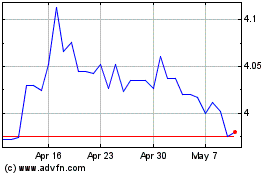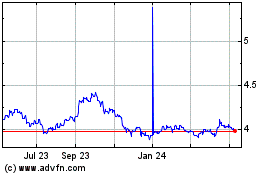German Business Confidence Tumbles To 11-month Low On Weaker Outlook
January 25 2016 - 1:48AM
RTTF2
German business confidence eased sharply at the start of the
year to its weakest level in eleven months, as global concerns such
as market volatility and slowdown in the emerging economies hurt
expectations significantly.
The Ifo business climate index dropped to 107.3 from 108.6 in
December, which was revised from 108.7, the Munich-based Ifo
Institute said Monday. Economists had forecast a 108.4 score.
The index slid for a second straight month and the latest
reading was the lowest since February last year, when it was
106.8.
"The year started with an unpleasant surprise for the German
economy," Ifo Institute President Hans-Werner Sinn said.
The current conditions index fell to 112.5, the lowest since
March last year, from 112.8. Economists had expected the measure to
hold steady.
The expectations index of the survey tumbled to 102.4 from
104.6, which was revised from 104.7. Economists were looking for a
modest decline to 104.2. The January reading was the lowest in five
months.
Morale in the factory sector fell to a 12-month low as
manufacturers scaled back expectations significantly. While low oil
prices benefited the chemicals sector, sentiment eroded in other
segments such as automobile and mechanical engineering on the back
of weaker export outlook.
In the construction sector, the business climate index continued
to drop sharply, mainly due to the pessimism among contractors
regarding the business outlook. Meanwhile, retailers turned
optimistic regarding their future business during January.
"The refugees and the political reactions will remain topic
number one in the coming weeks," ING Bank economist Carsten Brzeski
said.
"However, today's Ifo index also shows that a scenario which
dominated financial markets over the last weeks has finally entered
German companies' boardrooms: it's the scenario in which extremely
low oil prices could do more harm than good."
The German manufacturing sector grew at the slowest pace in
eight months in January, partly due to the struggling oil industry,
results of the latest Purchasing Managers' survey by Markit
Economics revealed last week.
Investor sentiment was also hurt by the emerging market
slowdown, forcing the ZEW economic sentiment indicator to fall in
January for the first time in three months.
The German economy expanded 1.7 percent in 2015, according to
Destatis, the most in four years as feeble inflation, record low
unemployment and wage growth boosted household spending.
The International Monetary Fund, however, upgraded its growth
projection for Germany last week. The biggest euro area economy is
expected to log a 1.7 percent expansion this year and next.
US Dollar vs PLN (FX:USDPLN)
Forex Chart
From Mar 2024 to Apr 2024

US Dollar vs PLN (FX:USDPLN)
Forex Chart
From Apr 2023 to Apr 2024
